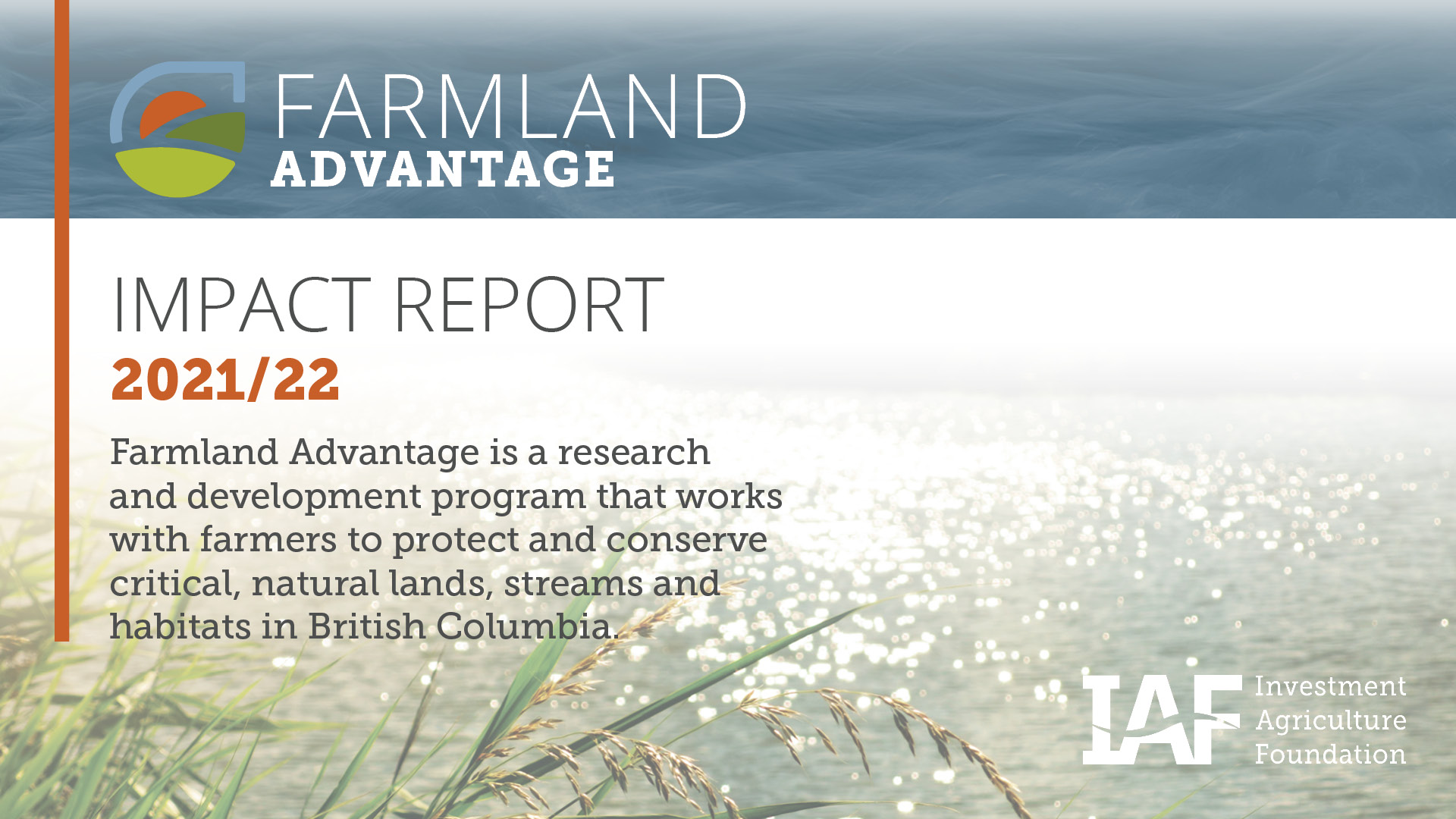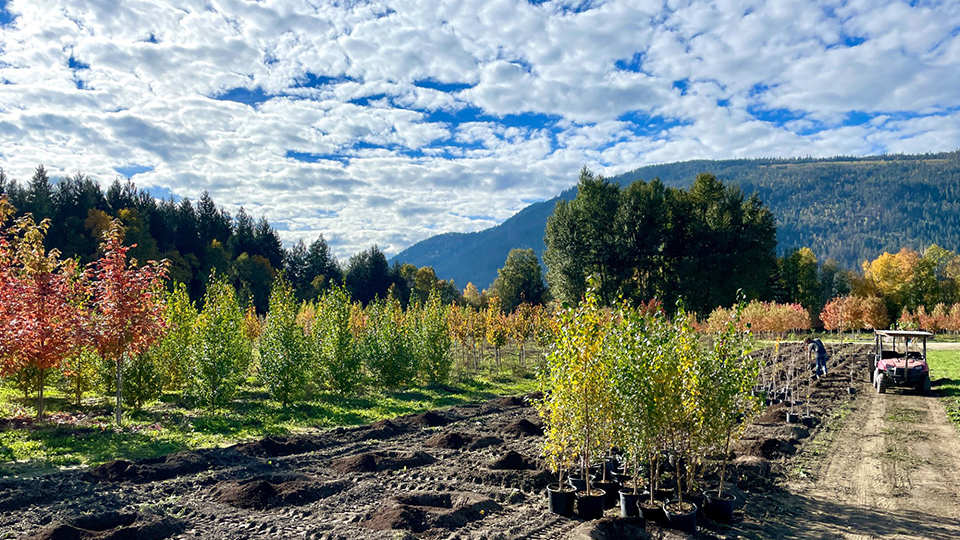
With climate change front and centre on the international stage, communities across the globe are rallying to address one of the most pressing issues of our time – protecting the future of our planet. But for farmers already dealing with climate impacts, solutions are needed now.
Fortunately, BC farmers are not facing these challenges alone. IAF is proud to partner with the BC Agricultural Research and Development Corporation to support the BC Agriculture & Food Climate Action Initiative (CAI). With funding from the federal and provincial governments through the Canadian Agricultural Partnership, CAI delivers two programs designed to help industry adapt and respond to the climate crisis.
While the Farm Adaptation Innovator Program delivers funding for farm-level applied research projects to help mitigate climate change impacts, the Regional Adaptation Program (RAP) unites producers, agricultural organizations and governments to identify priority impacts and strategies and to implement adaptation measures on a broader scale.
“The ability of producers to adapt to climate change is often linked to physical infrastructure, informational tools and resources, and decision-making processes that are beyond the individual farm level,” says CAI director Emily MacNair.
Under RAP, each region’s plan reflects the climate change impacts specific to that area, as well as the adaptive capacity, challenges and opportunities facing that region’s agriculture.
According to Emily, collaboration is a key indicator of their success and has served as a guiding principle since the CAI was formed in 2008.
“This foundational work of cultivating partnerships across sectors and all levels of government has uniquely positioned the BC agriculture industry to adapt to the impacts of climate change.”
Thanks to the combined efforts behind RAP, the Bulkley-Nechako & Fraser-Fort George plan was recently completed, allowing the regional advisory committee to begin implementation of high-priority projects. The plan identifies four priority challenges affecting the region, including increasing wildfire risk, increasing variability and changing crop suitability, warmer and drier summer conditions, and changing pest dynamics.
First up is a project to compile and share relevant resources about agricultural water management to encourage best practices. Given the increasing water demands resulting from shifting summer conditions, the project couldn’t be timelier for local producers.
“The project’s focus is to promote knowledge transfer and provide resources about water conservation and efficiency measures that are straightforward and cost-effective,” says Emily, adding that producers will also have the opportunity to discuss their specific operation or water management challenges with subject matter experts.
Between 2013 and 2018, six regional adaptation plans and 41 regional projects were completed under the RAP, with more than 400 individuals participating in the planning processes.
Each milestone achieved reflects a prodigious strength in numbers, as CAI relies on the input and support from a number of different partners to keep everything running smoothly. In addition to offering strategic advice as a CAI committee member, IAF is pleased to ensure that administrative processes work seamlessly behind the scenes – this means managing project contracts and payments, maintaining records management systems and service standards, and program reporting to keep our government funders informed of the impacts of their investments.
“We’re thankful IAF fulfills this vital role so we can focus our efforts on cultivating key partnerships, managing projects and sharing results,” says Emily. “They do a great job of effective and efficient program administration.”
Funding for the BC Agriculture & Food Climate Action Initiative is provided by the Governments of Canada and British Columbia through the Canadian Agricultural Partnership, a federal-provincial-territorial initiative. Funding is administered by the Investment Agriculture Foundation of BC and the BC Agricultural Research & Development Corporation.









